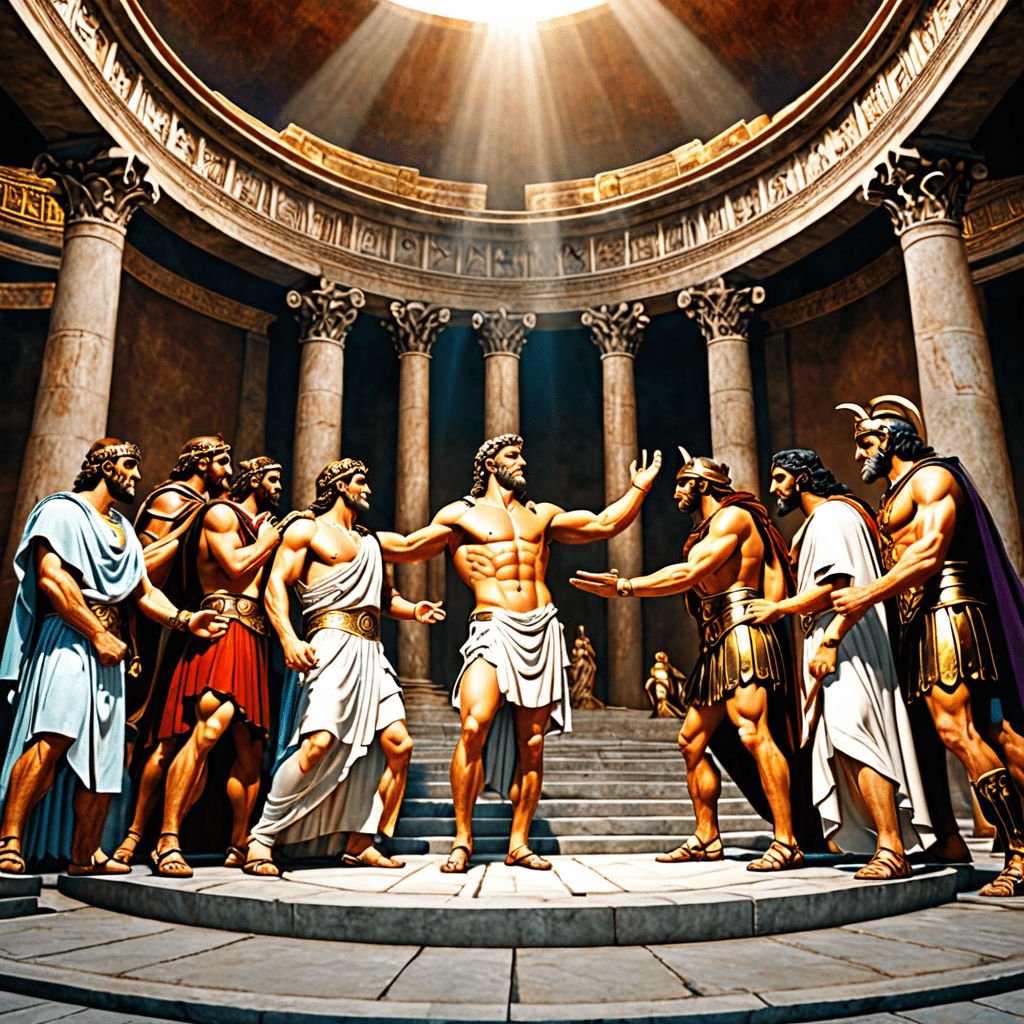Exploring Roman Mythology: Deities of Healing and Medicine
In the rich tapestry of Roman mythology, healing and medicine were considered essential aspects of maintaining health and well-being. The Romans revered various gods and goddesses associated with the art of healing, each with unique abilities and attributes that played significant roles in ancient Roman society. Let us delve into the fascinating realm of Roman gods of healing and medicine.
1. Apollo: the God of Healing
One of the most prominent figures in Roman mythology, Apollo, was revered as the god of healing, light, and truth. People sought his aid in curing diseases and promoting overall well-being. Apollo was believed to provide protection during epidemics and offered guidance to physicians and healers. His temples often served as places of healing where the sick would go to seek remedies and solace.
2. Asclepius: the God of Medicine
Asclepius, the son of Apollo, was the renowned God of Medicine in Roman mythology. He was often depicted carrying a rod entwined with a serpent, known as the Rod of Asclepius, a symbol associated with medicine to this day. Temples dedicated to Asclepius, called Asclepions, were sacred places where the sick would seek remedies and miraculous cures through rituals, prayers, and the administration of medicinal herbs.
3. Hygieia: the Goddess of Health
Hygieia, the daughter of Asclepius, was revered as the goddess of health, cleanliness, and hygiene in Roman mythology. She symbolized the principles of prevention and overall well-being. Hygieia’s presence was indispensable in maintaining good health and warding off illnesses. The concept of hygiene, derived from her name, emphasizes the importance of cleanliness and sanitation in promoting health and wellness.
4. Salus: the Goddess of Well-being
Salus, the goddess of well-being and prosperity, was another significant figure in Roman mythology associated with health and safety. She was often depicted holding a serpent, symbolizing renewal and rejuvenation. Salus represented the idea of wholesomeness and prosperity that stemmed from good health and overall well-being. Worshipped during times of peace and tranquility, Salus was believed to protect individuals from harm and promote prosperity.
In conclusion, the gods and goddesses of healing and medicine in Roman mythology played crucial roles in the lives of ancient Romans. Their presence offered solace, hope, and guidance to those seeking remedies for ailments or wishing to maintain good health. The legacy of these deities continues to resonate in modern society, highlighting the timeless importance of health, wellness, and the pursuit of healing.
FAQs about Roman Mythology: Gods of Healing and Medicine
Who were the main Roman gods associated with healing and medicine?
In Roman mythology, the main gods of healing and medicine were Apollo, Asclepius, and Hygieia. Apollo was a god of healing, light, and truth. Asclepius was the god of medicine and healing, often depicted holding a rod with a serpent entwined, which has become a symbol of medicine. Hygieia was the goddess of cleanliness and hygiene, believed to safeguard health.
What was the role of Apollo in healing and medicine?
Apollo was a significant deity in Roman mythology associated with healing and medicine. He was believed to have the power to cure diseases and bring about divine healing. Worshipped in healing sanctuaries, Apollo was also associated with music, prophecy, and the arts.
Who was Asclepius, and how was he revered in Roman mythology?
Asclepius was a renowned figure in Roman mythology, known as the god of medicine and healing. He was often depicted carrying a rod with a serpent coiled around it, symbolizing renewal and healing. Asclepius was believed to possess the ability to cure the sick and wounded.
What was the significance of Hygieia in Roman mythology?
Hygieia played a crucial role in Roman mythology as



